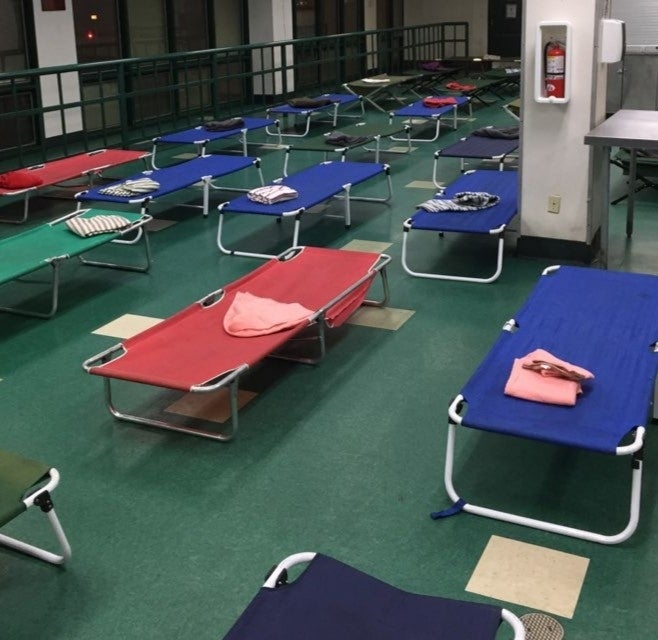The City of San Diego’s Inclement Weather Shelter Program, Explained

Winter is coming, which means temperatures will drop and people experiencing homelessness will need additional warm, safe places to go, especially when it rains.
The City of San Diego’s Inclement Weather Shelter Program provides additional shelter capacity during rainy or bad weather days.
The program typically operates from November through March and is activated when any of these conditions are met: The temperature is 50ºF or below and there is a 40% chance of rain; the temperature is 45ºF or below regardless of a chance of rain; or in exceptional weather conditions, such as one or more inches of rain within 24 hours and sustained high winds.
People can show up directly to the locations listed online here to gain access to a bed. Beds opened for inclement weather are on a per-night basis, and access to a bed is first-come-first-served; however, we always have had open beds every time the program has been activated and there was never a time when we had to turn someone away.
Those staying at the City’s Safe Sleeping sites will not need to access indoor shelter beds because the sites use tents designed for ice fishing that are able to withstand extreme temperatures. They are insulated and will keep people inside warm during cooler weather and keep them cool during warmer weather.
Platforms under the tents also help with protection against moisture and weather conditions, and temperature checks are conducted regularly on site.
If you want to help ensure people experiencing homelessness stay warm during the coming winter months by donating blankets or warm clothes, we recommend donating directly to a service providers. Consider participating in the Downtown San Diego Partnership’s Winter Donation Drive. The organization is asking for donations of hats, gloves, sweatpants, socks, sweaters and other things to help people stay warm. Please resist the urge to donate blankets and warm clothes directly to people experiencing homelessness, as it can prevent them from accepting shelter and work to trap them in an endless cycle of homelessness.
